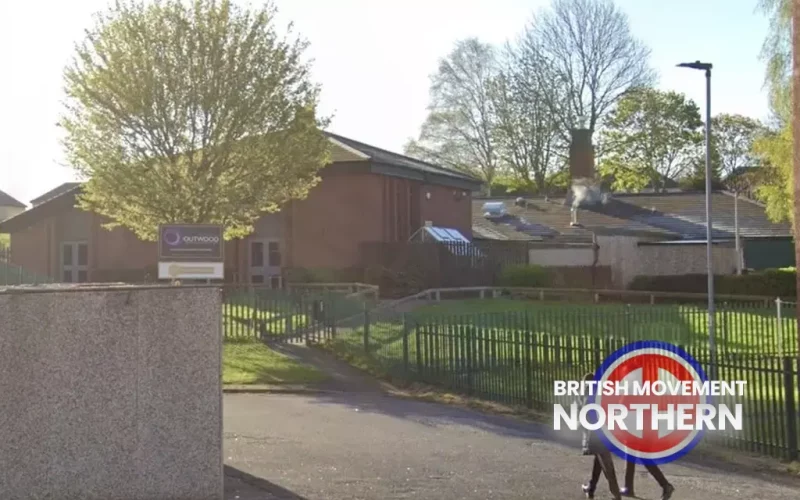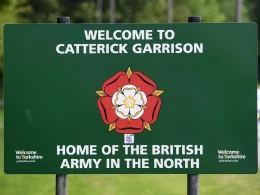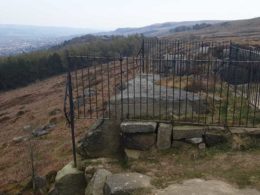Last week, it was reported that a primary school in Wakefield, West Yorkshire, had apologised to parents and carers for serving non-halal meat that was labeled as halal.
The Principal of Outwood Primary Academy Greenhill, Martin Fenton, stated that it was an error and he was “very sorry that it has happened. I know that you will be very disappointed to hear this news but I would like to reassure you that it was a mistake and I am very sorry that it has happened,” he said in a letter to parents.”
Halal is the Islamic form of animal slaughter, and involves killing through a cut to the jugular vein, carotid artery and windpipe. Animals must be alive and healthy at the time of slaughter and all blood is drained from the carcass. During the process, a Muslim will recite a dedication.
The RSPCA says slaughter without pre-stunning causes “unnecessary suffering”, although that is as far as that organisation will go in opposing ritual slaughter, for fear of offending certain minority groups.
The stunning of livestock has been mandatory in the EU since 1979, although member states can grant exemptions for religious slaughter. Some countries, including Denmark, have opted to ban non-stunning slaughter altogether. The UK government says it has no intention of banning religious slaughter.
There are similarities in the method of slaughter between Jews and Muslims in that both require use of a surgically sharp knife and specially-trained slaughtermen. Jewish law strictly forbids the use of stunning and meats are not blessed in the same way.
In 2014, the Halal Food Authority (HFA) estimated that 15% of all meat slaughtered in the UK was halal compliant. Under HFA guidelines, slaughterhouses must be completely halal compliant. That means they cannot have some areas that meet standards and others which do not. This is the reason that many slaughterhouses now kill all animals by this method.
To Jews, meat from the hindquarters of a cow is forbidden under their dietary laws. This part of the animal is not kosher due to a story from the Old Testament involving Jacob. We won’t bore you with the details of this fiction, but we will make the following point regarding the forbidden cuts of meat.
These cuts of meat include filet mignon, porterhouse, flank, sirloin, T-bone and round cuts. Is the ‘forbidden’ meat just thrown away? No, it is sold to unsuspecting Gentiles unlabeled. So the animal-loving British housewife, who probably has a dog or cat herself and donates to animal welfare charities after seeing their emotive adverts on the television, is unknowingly buying meat from gentle creatures who have been slaughtered in a barbaric, primitive ritual which was first outlawed in Europe many years ago.
The killing of any sentient creature in a way that is cruel, painful and distressing should not be tolerated a day longer. The British Movement demands that the ritual slaughter of animals be consigned to the dustbin of history where it belongs.
- Since 1893, Switzerland has had a ban on ritual slaughter.
- Germany: The National Socialists banned ritual slaughter on April 21, 1933, and enforced the ban throughout its dominion during World War Two.
- In 1936, the Polish parliament passed a bill requiring all animals to be electrically stunned to death. The Jewish community protested the bill on the basis of religious freedom, and it was eventually shelved because of the dissolution of the Polish Parliament in 1938.
- In 1955, in Britain, various groups attempted and failed to ban ritual slaughter. In 2003, animal rights groups tried again, but that effort failed as well.
- Slovenia has banned all ritual slaughter. As amended in 2012, Slovenia’s Animal Welfare Act banned all ritual slaughter. In 2018, the Constitutional Court unanimously upheld the Act
- Jan 9, 2019. A ban of halal and kosher slaughter methods, came into effect in the Flanders regions of Belgium.
- In addition, a number of European states also have laws prohibiting ritual slaughter by requiring prior stunning.
Resources:
Top Image: Google. Outwood Primary Academy Greenhill, Wakefield.
The British Movement welcomes articles for possible inclusion on this site from members and supporters across the North of England. Please remember that we have to operate within the laws of this country – we will not include any content that is against the current laws of the United Kingdom. News reports should be topical and be relevant to the regions covered by this website.












